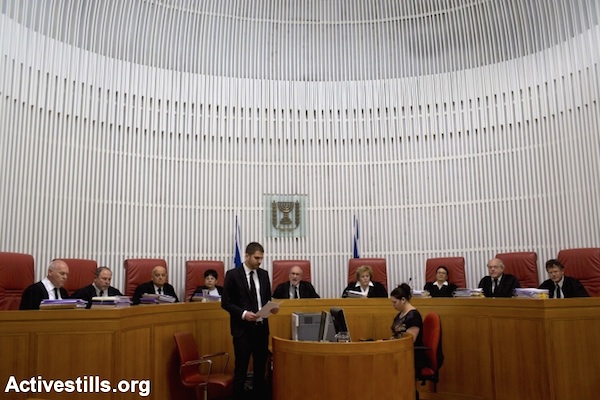Chairman of the Knesset Constitution, Law and Justice Committee says every piece of legislation should be ‘compatible with Jewish law.’

From the moment Israel’s founding fathers declared the independence of their state, Israeli politicians have been unable to agree on a formal constitution. Although the Declaration of Independence stipulated that a constitution be written by October 1, 1948, the 1948 war—as well as the inability of different groups in Israeli society to agree on the purpose and identity of the state—prevented that from happening.
Every so often the idea of a formal constitution is floated by politicians and civil society, but has never come to fruition. Now, it seems, the idea of preparing a constitution is being rendered redundant by the chairman of the Knesset committee charged with, among other things, determining the constitutionality of proposed Knesset bills.
In an interview with the Israel Hayom daily this week, Nissan Slomiansky, the chairman of the Knesset Constitution, Law and Justice Committee, stated that drafting a constitution is unnecessary, since “Israel already has a constitution, the Bible.”
According to Slomiansky (Jewish Home), Knesset legislation should be “compatible with Jewish law,” adding that “there is no reason why this should not be the case.”
Like the United Kingdom, Israel doesn’t have a written constitution, but rather relies on a set of “basic laws” that were built piecemeal since its founding. These laws deal with the formation and role of state’s institutions; the relations between the different state authorities and branches; and they protect civil rights. Basic laws were given constitutional status in a 1992 landmark decision by the Chief Justice of Israel’s Supreme Court at the time, Aharon Barak. Since then, the Supreme Court has asserted its authority to invalidate provisions of Knesset laws it has found to be inconsistent with a basic law—a reality that Slomiansky’s party is working hard to change.
Slomiansky, a founder of Gush Emunim (a Jewish messianic movement that promoted the settlement of Jews in the occupied territories) and former head of the Council of Judea and Samaria (Yesha Council), is one of the key forces pushing for a major overhaul of the court, an institution that he believes is “disconnected from the will of the people.” In essence, however, his goal is to replace its more liberal justices and allow the Knesset to override Supreme Court rulings that strike down anti-democratic legislation. Justice Minister Ayelet Shaked, also from his Jewish Home party, has expressed support in the past for this line of thinking.
Slomiansky and his ilk are unlikely to singlehandedly overturn Israel’s judicial system overnight. But his comments are reflective of the direction Israeli society has taken over recent years. The Jewish Home party has been unapologetic about its desire to give ascendancy to the “Jewish” rather than “democratic” character of the state, and its annexationist aspirations in the West Bank, attacks on human rights NGOs, inculcation of religious-Zionist values in the nation’s youth, and its outright racism are all indications that Slomiansky’s pipe dream may be closer than we would like to think.


